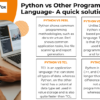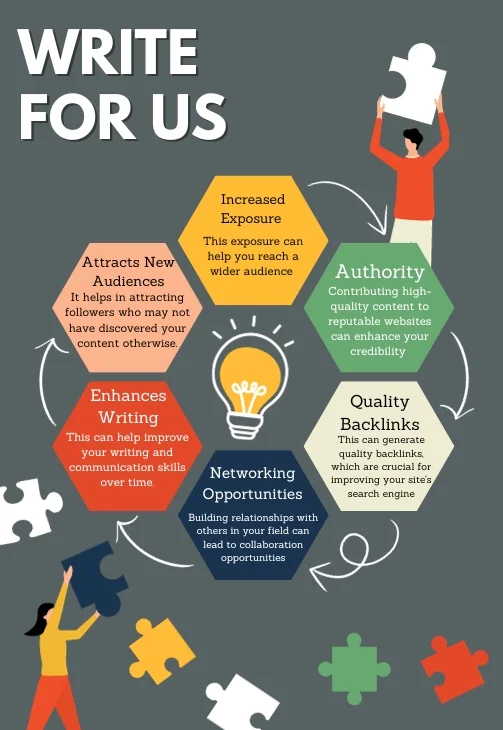Paving the Way for Professional Growth
Embarking on the ISO 9001 Lead Auditor course is a strategic move for professionals seeking to enhance their skills and open doors to new career opportunities. This comprehensive guide explores the nuances of the course, its benefits, and the steps to becoming a certified iso 9001 lead auditor course.
Understanding the Significance of ISO 9001 Lead Auditor Certification
Introduction to ISO 9001
Before delving into the specifics of the ISO 9001 Lead Auditor course, it’s crucial to understand the foundation—the ISO 9001 standard. ISO 9001 sets the benchmarks for quality management systems, emphasizing continuous improvement and customer satisfaction.
The Role of a Lead Auditor
A Lead Auditor plays a pivotal role in ensuring that organizations comply with iso 9001 lead auditor course standards. They are responsible for planning and executing audits, assessing the effectiveness of quality management systems, and providing valuable insights for improvement.
ISO 9001 Lead Auditor Course Outline: A Roadmap to Expertise
Principles of Quality Management
The ISO 9001 lead auditor course begins by establishing a strong foundation in the principles of quality management. Participants gain insights into the key elements of ISO 9001 Lead Auditor Course and the importance of aligning quality objectives with organizational goals.
Audit Planning and Preparation
An effective audit starts with meticulous planning. Participants learn the art of developing audit plans, defining objectives, and creating checklists to ensure a comprehensive and systematic approach to the audit process.
Conducting the Audit: Techniques and Best Practices
The core of the ISO 9001 lead auditor course focuses on the practical aspects of conducting an audit. From interviewing techniques to document review, participants gain hands-on experience in assessing conformity and identifying opportunities for improvement.
Reporting and Communication Skills
A Lead Auditor must not only identify areas for improvement but also communicate findings effectively. This segment of the course hones communication skills, emphasizing the creation of clear and actionable audit reports.
Corrective Action and Follow-Up
The course doesn’t conclude with the audit itself. Participants delve into the critical phase of recommending corrective actions and monitoring their implementation. This ensures a holistic understanding of the audit lifecycle.
Benefits of Obtaining ISO 9001 Lead Auditor Certification
Global Recognition and Career Opportunities
ISO 9001 Lead Auditor certification is globally recognized, opening doors to a plethora of career opportunities. Organizations value certified Lead Auditors for their expertise in ensuring compliance with international quality standards.
Enhanced Skill Set and Professional Development
Beyond certification, the course equips professionals with a diverse skill set. From analytical thinking to effective communication, participants emerge as well-rounded professionals ready to tackle the challenges of quality management.
Contributing to Organizational Excellence
A certified Lead Auditor becomes a valuable asset to any organization. By proactively identifying areas for improvement, they contribute to the continuous enhancement of quality management systems, fostering a culture of excellence.
Steps to Becoming a Certified ISO 9001 Lead Auditor
Enrollment in an Accredited Training Program
The journey begins with selecting a reputable training provider accredited by relevant certification bodies. Accredited programs ensure that participants receive quality education aligned with industry standards.
Active Participation and Practical Experience
Active participation is key to mastering the skills required of a Lead Auditor. Engaging in practical exercises, real-world case studies, and mock audits enhances the learning experience and prepares participants for real-world scenarios.
Successful Completion of the Certification Exam
The culmination of the course is the certification exam. Participants demonstrate their understanding of iso 9001 lead auditor course principles, audit methodologies, and best practices. Successful completion is the gateway to becoming a certified ISO 9001 Lead Auditor Course.
Mastering Audit Techniques: A Deeper Dive
Effective Interviewing Techniques
An essential skill for any Lead Auditor is the ability to conduct effective interviews. The course delves into the art of asking probing questions, actively listening, and extracting valuable information from auditees.
Document Review Strategies
Participants learn to navigate through a myriad of documents during an audit. The course teaches strategies for efficient document review, ensuring auditors can quickly identify relevant information and assess compliance.
Interactive Learning Environments: Workshops and Simulations
Role-Playing Workshops
To foster a dynamic learning environment, role-playing workshops are integrated into the course. These workshops allow participants to take on different roles, including that of an auditor and an auditee, providing a 360-degree perspective of the audit process.
Simulated Audits
Simulated audits replicate real-world audit scenarios. Participants, in small groups, conduct mock audits, applying the skills they’ve acquired. These simulations offer a safe space for mistakes and learning, ensuring participants are well-prepared for actual audits.
Industry Trends: Staying Ahead of the Curve
Integration of Technology
With the digital transformation sweeping across industries, the course adapts to incorporate the latest technological trends. Participants learn how to leverage audit management software, data analytics, and automation tools for more efficient and effective audits.
Remote Auditing Practices
The COVID-19 pandemic accelerated the adoption of remote work and remote auditing practices. The course addresses the nuances of conducting audits remotely, preparing auditors for the challenges and opportunities presented by virtual audits.
Networking Opportunities: Building Professional Connections
Industry Forums and Conferences
Participants not only gain knowledge from the course but also have the opportunity to connect with industry professionals. Attending forums and conferences allows auditors to stay updated on industry trends and best practices.
Online Communities and Forums
The course encourages participants to join online communities and forums dedicated to quality management and auditing. These platforms facilitate knowledge exchange, providing a space for auditors to seek advice, share experiences, and stay connected.
Conclusion: Elevating Careers through Expertise
In conclusion, the ISO 9001 Lead Auditor course is not just a certification; it’s a journey towards professional excellence. Armed with in-depth knowledge and practical skills, certified Lead Auditors stand at the forefront of ensuring quality and driving organizational success.
FAQs
Q1: Is ISO 9001 Lead Auditor certification recognized internationally?
A1: Yes, ISO 9001 Lead Auditor certification is globally recognized and highly valued by organizations across industries.
Q2: Can individuals from non-quality backgrounds enroll in the course?
A2: Absolutely. The course is designed to accommodate participants from diverse professional backgrounds, providing a comprehensive introduction to quality management principles.
Q3: How long is the ISO 9001 Lead Auditor course?
A3: The duration of the course varies but typically ranges from five to seven days, including both training and examination components.
Q4: Are there prerequisites for enrolling in the Lead Auditor course?
A4: While there are no strict prerequisites, a basic understanding of quality management principles can be beneficial for participants.
Q5: What is the validity of ISO 9001 Lead Auditor certification?
A5: ISO 9001 Lead Auditor certification is typically valid for three years. Recertification involves meeting continuing education requirements and staying updated with industry best practices.








